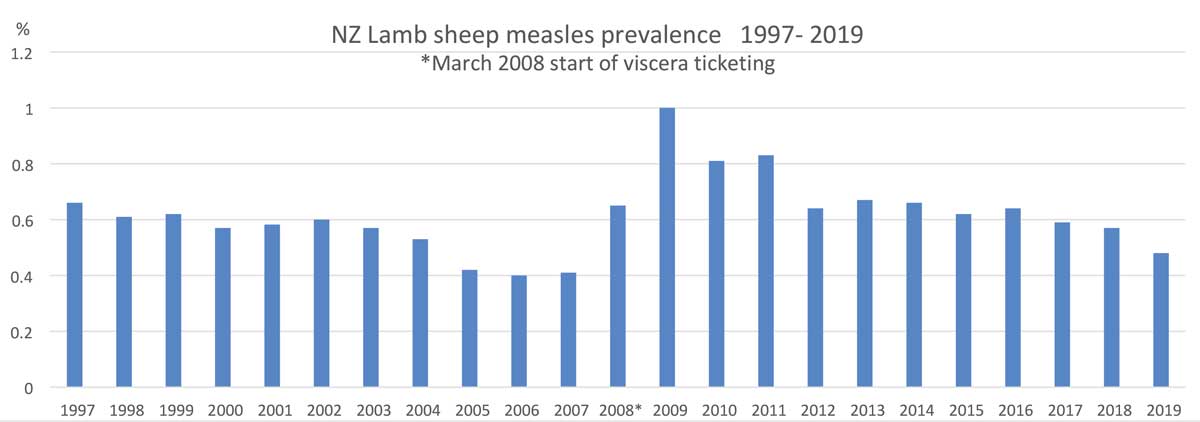Getting sheep shape at Pyramid Farm
The vineyards at Pyramid Farm in Marlborough’s Avon Valley have never been run of the mill, with plantings that follow the natural contours of the land, 250 metres above sea level.
A big drop in sheep measles prevalence has occurred during the past 12 months.
“The national prevalence of sheep measles has dropped from 0.57% last season to 0.48%,” says Dan Lynch, project manager of Ovis Management.
“At first glance, it doesn’t look huge, but in real terms it is. It’s a great result.”
He says several factors, such as higher ewe values, mean there’s less home-kill being fed to dogs on-farm, reducing the risk of C. ovis outbreaks. But much of the latest drop in prevalence results from a steady increase in the number of farmers dosing their dogs monthly.
“While the reduction has been occurring over several seasons this is the most significant to date.”

However, Lynch says that’s no cause for complacency as sheep measles remains a quality issue in the marketplace.
Ovis Management has in the last 12 months worked to get its message to a bigger audience by more use of social media, new branding and an updated website.
“The goal, to share the importance of preventing sheep measles, is not just for farmers but other dog owners who may unwittingly allow their dogs to carry and spread the parasite,” Lynch said.
“ ‘Promote, protect and participate’ are the three pillars of the new-look branding. The message is that every at-risk dog, big or small, should be dosed monthly.”
New Zealand now has relatively low levels of sheep measles. An outbreak could cause a lot of damage in otherwise healthy stock.
There are also real financial costs for farmers. At processing, infected animals result in downgrading or, in extreme cases, condemning of sheep or lamb carcases.
The latest Global Dairy Trade auction results have delivered a boost to dairy farmers.
New Zealand potato growers are prioritising value creation from high yields to meet a complex mix of challenges and opportunities, says Potatoes NZ chief executive Kate Trufitt.
A Hawke's Bay apple orchardist supports the Government's objective of doubling exports but says this won't happen in the horticulture sector unless there's a change in the process for bringing new plant material into the country.
Canterbury arable farmers are down by tens of millions of dollars after a rollercoaster of wild changeable January weather saw harvests delayed and some crops destroyed by violent hailstorms.
Could a breakthrough in fermentation create a new multi-million-dollar export market for shiitake mushroom extracts into China?
Meadow Fresh has created the world's first fantasy sports league powered by real cows.

OPINION: Meanwhile, red blooded Northland politician Matua Shane Jones has provided one of the most telling quotes of the year…
OPINION: This old mutt has been around for a few years now and it seems these ‘once in 100-year’ weather…